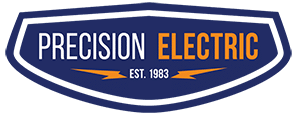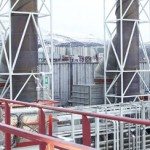ABB DTC
ABB DTC or Direct Torque Control, is the most advanced AC drive technology developed by any drive manufacturer in the world.With the revolutionary ABB DTC technology, field orientation is achieved without feedback using advanced motor theory to calculate the motor torque directly and without using modulation. The controlling variables are motor magnetising flux and motor torque. With ABB DTC, there is no modulator and no requirement for a tachometer or position encoder to feed back the speed or position of the motor shaft. ABB DTC uses the fastest digital signal processing hardware available and a more advanced mathematical understanding of how a motor works. The result is a drive with a torque response that is typically 10 times faster than any AC or DC drive. The dynamic speed accuracy of ABB DTC drives will be 8 times better than any open loop AC drives and comparable to a DC drive that is using feedback. ABB DTC produces the first universal drive with the capability to perform like either an AC or DC drive.
There are many benefits of ABB DTC technology. But most significantly, drives using ABB DTC technology have the following exceptional dynamic performance features, many of which are obtained without the need for an encoder or tachometer to monitor shaft position or speed: Torque response: How quickly the drive output can reach the specified value when a nominal 100 percent torque reference step is applied. For DTC, a typical torque response is 1 to 2 ms below 40 Hz compared to between 10-20 ms for both flux vector and DC drives fitted with an encoder. With open loop PWM drives,the response time is typically well over 100 ms. With its torque response, ABB DTC has achieved the natural limit. With the voltage and current available, response time cannot be any shorter. Even in the newer sensorless drives the torque response is hundreds of milliseconds. Accurate torque control at low frequencies, as well as full load torque at zero speed without the need for a feedback device such as an encoder or tachometer. With ABB DTC, speed can be controlled to frequencies below 0.5 Hz and still provide 100 percent torque right the way through to zero speed. Torque repeatability:How well the drive repeats its output torque with the same torque reference command. ABB DTC, without an encoder, can provide 1 to 2 percent torque repeatability of the nominal torque across the speed range. This is half that of other open-loop AC drives and equal to that of closed-loop AC and DC drives.
Motor static speed accuracy:Error between speed reference and actual value at constant load. For ABB DTC, speed accuracy is 10 percent of the motor slip, which with an 11 kW motor, equals 0.3 percent static speed accuracy. With a 110 kW motor, speed accuracy is 0.1 percent without encoder (open-loop). This satisfies the accuracy requirement or 95 percent of industrial drives applications. For the same accuracy from DC drives an encoder is needed. In contrast, with frequency controlled PWM drives, the static speed accuracy is typically between 1 to 3 percent. So the potential for customer process improvements is significantly higher with standard drives using ABB DTC technology. An ABB DTC drive using an encoder with 1024 pulses/revolution can achieve a speed accuracy of 0.01 percent. Dynamic speed accuracy:Time integral of speed deviation when a nominal (100 percent) torque speed is applied. ABB DTC open-loop dynamic speed accuracy is between 0.3 to 0.4%sec. This depends on the gain adjustment of the controller, which can be tuned to the process requirements. With other open-loop AC drives, the dynamic accuracy is eight times less and in practical terms around 3%sec.If we furnish the ABB DTC controller with an encoder, the dynamic speed accuracy will be 0.1%sec, which matches servo drive performance.
Standard applications account for 70 percent of all variable speed drives installed throughout industry. Two of the most common applications are in fans and pumps in industries like heating, ventilating and air conditioning (HVAC), water and food and drinks. In these applications, ABB DTC provides solutions to problems like harmonics and noise. For example, ABB DTC technology can provide control to the drive input line generating unit, where a conventional diode bridge is replaced with a controlled bridge. This means that harmonics can be significantly reduced with a DTC controlled input bridge. The low level current distortion with an ABB DTC controlled bridge will be less than a conventional 6-pulse or 12-pulse configuration and power factor can be as high as 0.99. For standard applications, ABB DTC drives easily withstand huge and sudden load torques caused by rapid changes in the process, without any overvoltage or overcurrent trip. Also, if there is a loss of input power for a short time, the drive must remain energised. The DC link voltage must not drop below the lowest control level of 80 percent. To ensure this, DTC has a 25 microseconds control cycle.
There are vast differences between ABB DTC and many of the sensorless drives. But the main difference is that ABB DTC provides accurate control even at low speeds and down to zero speed without encoder feedback. At low frequencies the nominal torque step can be increased in less than 1ms. This is the best available, because the motor is now the limit of performance and not the drive itself. A typical dynamic speed accuracy for a servo drive is 0.1%s. An ABB DTC drive can reach this dynamic accuracy with the optional speed feedback from a tachometer. The most striking difference is the sheer speed by which ABB DTC operates. As mentioned above, the torque response is the quickest available. To achieve a fast torque loop, ABB has utilised the latest high speed signal processing technology and spent 100 man years developing the highly advanced motor model which precisely simulates the actual motor parameters within the controller.
To learn more about ABB DTC or for ABB drive repair and replacement quotes, contact Precision Electric.








Comments are closed.